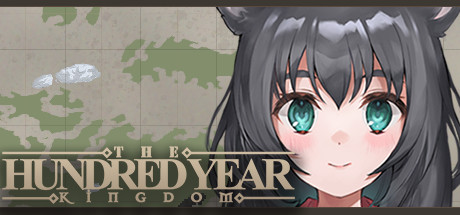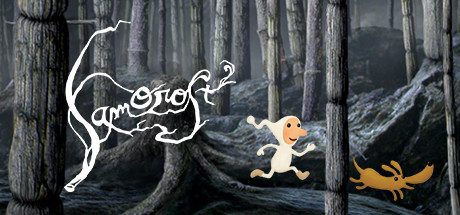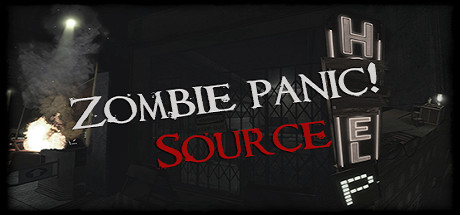The Hundred Year Kingdom Reviews
Create a world free of conflict in this innovative turn-based simulation. Work together with a mythical young goddess to develop a peaceful civilization over the course of a century.
| App ID | 1581170 |
| App Type | GAME |
| Developers | kaeru-san games |
| Publishers | Waku Waku Games |
| Categories | Single-player, Steam Achievements, Steam Cloud, Partial Controller Support |
| Genres | Casual, Indie, Strategy, Simulation |
| Release Date | 2 Feb, 2022 |
| Platforms | Windows |
| Supported Languages | English, Simplified Chinese, Traditional Chinese, Japanese |

1 Total Reviews
1 Positive Reviews
0 Negative Reviews
Negative Score
The Hundred Year Kingdom has garnered a total of 1 reviews, with 1 positive reviews and 0 negative reviews, resulting in a ‘Negative’ overall score.
Recent Steam Reviews
This section displays the 10 most recent Steam reviews for the game, showcasing a mix of player experiences and sentiments. Each review summary includes the total playtime along with the number of thumbs-up and thumbs-down reactions, clearly indicating the community's feedback
Playtime:
2220 minutes
Fun enough. Was looking for a cheap, simple city-builder and that's what I got. Some design flaws, but worth the price. Takes roughly 15 hours to unlock endless mode.
👍 : 0 |
😃 : 0
Positive
Playtime:
1335 minutes
This game feels a little unfinished. I think there needs to be a little more, maybe multiple endings depending on the kind of civilisation you've built?
Also, the "offerings" do not change no matter which map you are playing or which goddess you are using as the oracle, which I think is very poorly planned out.
👍 : 0 |
😃 : 0
Negative
Playtime:
58 minutes
An interesting little cross between a city-builder and a puzzle game. The fact that it's fully controller compatible made it the perfect way to get a quick strategy fix on Steam Deck. You're basically building up a civilization over the course of 100 turns, and the only thing you do on each turn is choose which building to put on each tile, with the goal of having as many resources by the end of the game as possible. The game doesn't do a great job explaining its mechanics but they're simple enough to figure out once you realize you just want as many resources as you can get in that 100 turns. I haven't quite pegged what an optimal strategy is yet, but I do look forward to refining my approach on subsequent runs.
If I had one critique, it would be that there doesn't seem to be any randomness or setbacks, this isn't necessarily a bad thing, but it does give me the impression that there's probably an optimal way to solve these that will work every time, which has me feeling like the game might not be infinitely replayable in the long-run like Civ or SimCity is, but I still foresee it taking a good while before I get the highest rating on each level. Otherwise it's a good light take on the genre with appealing visuals and music.
👍 : 0 |
😃 : 0
Positive
Playtime:
1222 minutes
TLDR:
Recommended if you like having cute waifus on your screen or simple yet complex high score based puzzle games
or maybe even both combined
---
Simply put this is a surprisingly complex synergy based puzzle game about producing as many ressources as possible within the titular hundred years (or rather actions) during a run of the game.
For each year you have the option of unlocking, clearing or upgrading one tile on the map provided you got enough ressources to pay for said action.
Even if not the best idea most of the time, one can even select to skip a year doing nothing.
The tricky part comes with that not every type of tile can evolve into every type of building so if you for example want a city in a specific spot but only have plains on it to work with? Bummer.
And whilst almost everything on any given map is and remains static at the beginning of every run, a few things remain variable for each run:
-unique environments like mountains jungles or islands seem to be selected at random on specific tiles on some maps
-the extra tiles Gaia unlocks at the start of a run seem to be selected at random
-later on there even is a fully randomly generated map to unlock
There are also some roguelite elements in that each of the godesses you can pick as your assistant for a run has a selection of unique buildings which firstly you gradually unlock over a few runs and later on you can level up in effectiveness across even more runs of the game.
That process might get a little bit grindy since for each run you can only level up the currently assisting goddess and ONE of her unique buildings. You can still use all of her unlocked ones at their current level but before starting a run you gotta pick which one gets EXP at the end of that run.
Some might dislike that grind, personally i like it and it kinda synergizes with the fact that the assisting goddesses grow ever more attached and clingy to the player across the first few runs with her.
They also get a bit sad at the end of every run since an ended run means youre seperated for at least 4 screens, (Result, Title Screen, Map selection, Loadout Selection) but if you dislike making cute waifus sad by waiting alone that just incentifies one to go for another run.
👍 : 1 |
😃 : 0
Positive
Playtime:
131 minutes
It's a fun game, but there are almost no hints for new players, it took me a long time to fully understand how to play, in fact that every square has to be clicked to reveal the content is causing me a lot of trouble. Every time a new species emerges, there is absolutely no idea how to build it, which makes a huge waste of time. I'm amazed that the game doesn't seem to be designed to admit new players, but just a new version for those who have played it before. As fun as it is, people don't to spend time on these things.
👍 : 3 |
😃 : 1
Positive
Playtime:
1345 minutes
This game is such a fun little puzzle game, and one that has a ton of content to play. I doubt very many people are going to get all the achievements inside of a year of play, but that's a good thing! It's really chill but engages your whole brain, and the developers did an amazing job with it.
👍 : 2 |
😃 : 0
Positive
Playtime:
65 minutes
The game's fun, it's a nice self-contained civilization game that's meant to be a short points hunt. Good for spending an hour trying to get a high score. My problem with the game is that the last 10 rounds of each session, whatever character you chose as your assistant starts saying sad things about how much they'll miss you out of nowhere every time, and you can't skip the dialogue or anything. It's cheap emotional manipulation and it made me not want to play the game anymore. It's a bit shallow I know but wouldn't it be more fun to end on a high note of doing well instead of a guilt trip from an anime girl?
👍 : 8 |
😃 : 1
Negative
Playtime:
348 minutes
Only had one full game. I will see myself playing this more in the future for sure. Its easily one of those games where you dont know what you want to play or you just want to kill some time.
Its fun upgrading the tiles and trying to min/max best outcomes from your legacies. The goddesses and their unique buildings upgrade as you use them so there is some after game rewards that continue to the next games.
Math is probably the most difficult thing you will encounter in the game, and some memorization of what upgrades into what.
👍 : 14 |
😃 : 1
Positive
Playtime:
114 minutes
Nice idea, but unfortunately not well executed and missing any polish.
The game does not have a lot of strategy to it, and it's athmosphere and cuteness are not at a level where they can stand on their own.
I was hoping for a game that gives you the nice feeling of "growing a garden". But the core fantasy of the title is missing. It does not feel like there is a kingdom being born and slowly blossoming.
Can not recommend the game because:
* Many tiles only let you build one type of building, which takes away from your decision making.
* Too many missed opportunities to put more synergy effects into the game. Adjacency effects can often be neglected because you cant choose the building you want to build, and some of the synergies are so strong, that you stop building anything else (no more thinking or strategy needed).
* Maps not procedurally generated.
* User Interface at best missing explanations, at worst in the way. Every couple of turns you get an event that gives you a small jokingly amount of ressources, but you need 6 to 7 clicks to get back to the game. It's difficult to see some of the tiles, and you need to click on them to see what they are. You can't zoom in.
* While art and music go into the right direction they are also missing polish. Upgrading buildings, having a positive event, or getting some synergies working does not feel good.
* The Gods are more annoying then helpful and possibly bugged. Giving the same text lines over and over again, and not really reacting to what you are doing (but instead giving you the tip to do stuff, that might not even be possible at that moment)
I still like the idea though and really hope the devs keep polishing the game. If this was an early access release with the intention to get player feedback it would have been perfectly fine.
👍 : 29 |
😃 : 2
Negative
Playtime:
482 minutes
The Hundred Year Kingdom presents itself as a very simplistic city builder. In essence, the game tasks you with building up a civilization over 100 turns.
The gameplay loop essentially goes like this:
1. Pick a tile
2. Pick an improvement for said tile
3. Turn ends.
You do that for a hundred turns and at the end you are graded based on how much surplus resources you have.
The three resources are food, production and culture. The two you pay attention to the most is food and production. Culture is used for certain advanced buildings (called legacies) and for unlocking special tiles like ancient ruins or mountain tiles. The game provides a little depth by employing the above mentioned legacies; these buildings are themed after famous landmarks, such as the Palace of Versaille or the Taj Mahal. Each legacy provides resources based on a certain building. For example the Palace of Versaille provides production equal to the number of wineries you have multiplied by 30. These bonuses can very quickly add up, with 4 wineries providing 120 production through the Palace. Finding the best ways to synergize legacies and their attendant buildings provides the game with a certain level of complexity.
Another layer is provided by the maps, which are not procedurally generated, sadly. Each map has a different layout, and a number of unique tiles, such as island tiles, which provide food equal to half of all production from adjacent tiles. You can choose to use these, or simply ignore them.
There's also a cute anime girl who serves as your attendant. Each one has a unique legacy associated with them, and they also provide passive resource bonuses. Unfortunately both their legacy and passive bonuses are tied to the attendant's levels, so at first their legacies will be fairly underwhelming compared to the general ones. Beyond that, they serve mostly as window dressing, really.
Despite the gameplay loop being so simple and unchanging over 100 turns, I never really felt bored in the 3 hours I played it. It's got a nice retro charm, given the pixel art style, and the general comfy-ness of the game really makes you feel relaxed. The BGM is also nothing to write home about, but it blends well with the game.
tl;dr Buy it, it's a pretty neat little game. Also has cute anime girl on screen all the time.
👍 : 45 |
😃 : 1
Positive







